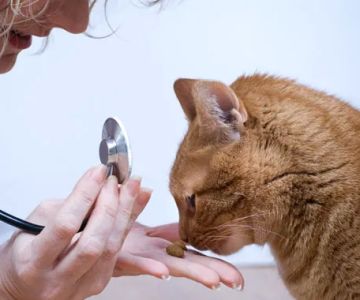What is the Process of Becoming a Veterinarian? A Complete Guide
Becoming a veterinarian is a rewarding career choice for those passionate about animals and healthcare. However, the journey to becoming a licensed veterinarian requires dedication, education, and hands-on experience. In this article, I’ll walk you through the entire process of how to become a veterinarian, from the early stages of education to the final licensing requirements. If you’ve ever wondered about what it takes to help care for animals professionally, keep reading.
1. The Basics of Being a Veterinarian
Veterinarians are medical professionals who diagnose and treat illnesses and injuries in animals. Their work often extends to surgery, preventive care, and even providing education to pet owners. They may work in various settings, including private practices, animal hospitals, research labs, and even government agencies. The role of a veterinarian is both fulfilling and challenging, requiring a diverse skill set and an understanding of animal behavior, physiology, and treatment procedures.
1.1 Types of Veterinarians
While most veterinarians work in small animal practices, such as caring for pets like cats and dogs, there are also veterinarians who specialize in large animals, exotic pets, or even in research and public health. The path you choose will influence your education and training, so it’s important to understand the different types of veterinary specialties.
2. Education: The First Step
The process of becoming a veterinarian begins with a solid foundation in education. It’s important to note that becoming a veterinarian requires a combination of undergraduate education, veterinary school, and hands-on training. Below are the key steps:
2.1 Completing an Undergraduate Degree
Before applying to veterinary school, you need to complete an undergraduate degree. While there is no specific major required, aspiring veterinarians often major in fields like biology, animal science, or pre-veterinary studies. It’s crucial to take courses in subjects like chemistry, biology, physics, and math, as these are prerequisites for veterinary school admissions.
2.2 Gaining Experience in the Animal Field
In addition to your formal education, gaining practical experience working with animals is essential. This can include volunteering at animal shelters, working as a veterinary assistant, or gaining experience in farms or zoos. Veterinary schools often look for candidates who have hands-on experience in the animal care field, as this demonstrates a genuine passion for animals and the profession.
3. Veterinary School: Advanced Education and Training
After completing your undergraduate degree, the next step is veterinary school. Veterinary school is a rigorous and competitive program that typically takes four years to complete. Admission to veterinary school is highly competitive, with many applicants vying for a limited number of spots. Here’s what you can expect:
3.1 Veterinary School Curriculum
Veterinary school focuses on advanced medical education and practical training. Students study subjects like animal anatomy, pharmacology, pathology, and surgery. The curriculum is a mix of classroom lectures, laboratory work, and clinical experience. Throughout veterinary school, students gain hands-on experience working with real animals under the supervision of experienced veterinarians.
3.2 Specialization During Veterinary School
While veterinary school covers a broad range of animal species and medical conditions, many students choose to specialize in a particular field. Specializations include small animal practice, equine medicine, wildlife conservation, and even veterinary surgery. Some schools offer tracks or elective courses that allow students to concentrate in a specific area of interest.
4. Licensure and Certification
After completing veterinary school, aspiring veterinarians must pass a licensing exam in order to practice legally. In the United States, this typically involves passing the North American Veterinary Licensing Examination (NAVLE), which assesses your knowledge of veterinary medicine. Additionally, veterinarians must meet the requirements set by the state in which they plan to practice, which may include state-specific exams or continuing education courses.
4.1 Requirements for Licensure
Each state in the U.S. has its own licensing requirements for veterinarians, but in general, you’ll need to:
- Complete a veterinary degree from an accredited school
- Pass the NAVLE exam
- Meet state-specific requirements, which may include additional exams or training
- Submit an application and undergo a background check
5. Continuing Education and Career Development
Becoming a veterinarian doesn’t stop at licensure. The field of veterinary medicine is constantly evolving, with new advancements in treatments, technology, and animal care. Veterinarians are required to continue their education throughout their careers to stay current with industry trends and maintain their licenses. Continuing education can take many forms, including conferences, workshops, and online courses.
5.1 Opportunities for Career Advancement
Veterinarians may choose to specialize further, pursue advanced degrees, or transition into research, teaching, or public health. With additional experience and education, veterinarians can increase their earning potential and career satisfaction. Many veterinarians go on to become practice owners, educators, or industry leaders, making a significant impact in the field of veterinary care.
6. Conclusion: A Rewarding and Challenging Career
Becoming a veterinarian is a challenging and rewarding journey that requires years of education, dedication, and hands-on experience. From gaining a solid foundation in science during your undergraduate years to completing a rigorous veterinary school program and obtaining licensure, the process is both demanding and fulfilling. For those passionate about animal care, becoming a veterinarian offers the opportunity to make a significant impact on the health and well-being of animals while enjoying a rewarding career. If you’re considering a career as a veterinarian, I encourage you to explore the path in detail and take the first step towards making a difference in the lives of animals.











